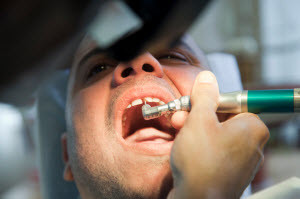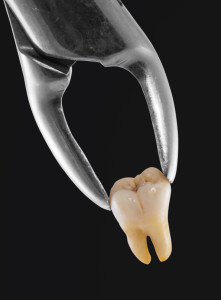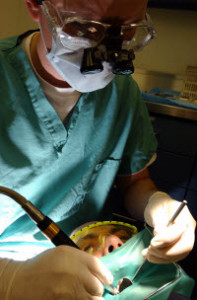 Breaking a tooth can be a painful and distressing experience. Whether it’s due to an injury, biting into something hard, or underlying dental issues, a broken tooth requires prompt attention to prevent further complications and maintain your oral health. In this article, we’ll address the causes of tooth breakage, its seriousness, the consequences of leaving it untreated, how to save a broken tooth, and the dental procedures available for repair.
Breaking a tooth can be a painful and distressing experience. Whether it’s due to an injury, biting into something hard, or underlying dental issues, a broken tooth requires prompt attention to prevent further complications and maintain your oral health. In this article, we’ll address the causes of tooth breakage, its seriousness, the consequences of leaving it untreated, how to save a broken tooth, and the dental procedures available for repair.
What Can Cause a Tooth to Break?
A tooth can break for various reasons, including:
a) Trauma: Accidents, falls, or sports injuries can cause immediate tooth fractures.
b) Biting Hard Objects: Chewing on ice, hard candies, or unpopped popcorn kernels can lead to tooth breakage.
c) Tooth Decay: Untreated cavities weaken teeth, making them susceptible to breaking.
d) Teeth Grinding (Bruxism): Consistent grinding or clenching of teeth can cause fractures over time.
e) Age and Wear: As you age, your teeth may naturally weaken, making them more prone to breakage.
Is a Broken Tooth a Serious Dental Condition?
Yes, a broken tooth is a serious dental condition. It can lead to several complications if not addressed promptly. The seriousness depends on the extent and location of the break, but potential issues include infection, pain, further damage, and even tooth loss.
What Happens if a Broken Tooth Is Left Untreated?
Leaving a broken tooth untreated can result in:
a) Infection: Bacteria can enter the tooth’s pulp, causing an abscess or spreading to nearby teeth.
b) Tooth Decay: An exposed inner portion of the tooth is vulnerable to decay.
c) Pain and Discomfort: A broken tooth can be extremely painful and may lead to ongoing discomfort.
d) Further Breakage: Without intervention, the break may worsen, potentially necessitating more extensive treatment.
Is It Possible to Save a Tooth That Has Broken?
Yes, it is often possible to save a broken tooth, but success depends on the severity of the fracture and how quickly you seek dental care. Early intervention is crucial for the best outcomes.
What Are the Top Tips for Saving a Broken Tooth?
When you break a tooth, follow these steps to maximize the chances of saving it:
a) Rinse Your Mouth: Gently rinse your mouth with warm water to clean the area.
b) Save Tooth Fragments: If pieces of the tooth have broken off, collect them and keep them moist (in milk or saliva) until you can see a dentist.
c) Control Bleeding: Apply gentle pressure with gauze if there’s bleeding.
d) Pain Management: Over-the-counter pain relievers can help manage pain until you receive dental care.
e) Seek Immediate Dental Care: Contact your dentist or an emergency dental clinic as soon as possible for professional evaluation and treatment.
Does a Broken Tooth Need to Be Pulled?
In most cases, a broken tooth does not need to be pulled. Dentists will explore options to save the tooth, such as dental bonding, a crown, or a root canal if necessary. Extraction is typically a last resort.
How Can a Dentist Repair a Broken Tooth?
Dentists have several methods to repair broken teeth, including:
a) Dental Bonding: This involves applying a tooth-colored resin to the broken area and shaping it to match the natural tooth.
b) Dental Crown: A crown is a cap that covers the damaged tooth, restoring its strength and appearance.
c) Root Canal: If the break extends into the pulp, a root canal may be necessary to remove infected tissue and preserve the tooth.
d) Dental Veneers: These thin shells can be applied to the front of the tooth to improve its appearance and strength.
e) Dental Implant: In cases where the tooth is severely damaged or cannot be saved, a dental implant may be recommended as a replacement.
Conclusion
A broken tooth is a dental emergency that requires immediate attention. While it can be a serious issue, timely intervention by a dentist can often save the tooth and prevent further complications. Remember to follow the top tips for managing a broken tooth, and consult your dentist in Baltimore for the most appropriate treatment plan to restore your oral health and smile.
 Toothaches come in many different forms, but are usually a sign that something needs to be checked by a dentist. When it comes to what actually causes toothaches, some common ones are gum infections, cavities, teeth grinding, infections, cracked teeth, and damaged fillings.
Toothaches come in many different forms, but are usually a sign that something needs to be checked by a dentist. When it comes to what actually causes toothaches, some common ones are gum infections, cavities, teeth grinding, infections, cracked teeth, and damaged fillings.


 A root canal is one of those procedures that people are generally afraid of. The thought of having someone go in and extract part of your tooth is more than many people can bear. With that being said, there are several solid reasons to get a root canal, including those mentioned here.
A root canal is one of those procedures that people are generally afraid of. The thought of having someone go in and extract part of your tooth is more than many people can bear. With that being said, there are several solid reasons to get a root canal, including those mentioned here.